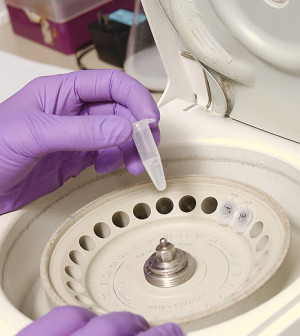- Could Your Grocery Store Meat Be Causing Recurring UTIs?
- Are You Making This Expensive Thermostat Error This Winter?
- Recognizing the Signs of Hypothyroidism
- 10 Strategies to Overcome Insomnia
- Could Artificial Sweeteners Be Aging the Brain Faster?
- Techniques for Soothing Your Nervous System
- Does the Water in Your House Smell Funny? Here’s Why
- Can a Daily Dose of Apple Cider Vinegar Actually Aid Weight Loss?
- 6 Health Beverages That Can Actually Spike Your Blood Sugar
- Treatment Options for Social Anxiety Disorder
Task Force Calls for More Study Into Risks, Benefits of Kids’ Cholesterol Screening

There’s not enough evidence to determine the potential benefits or risks of screening for high cholesterol in children and teens without symptoms, signs or a known diagnosis, experts say.
For that reason, no recommendation can be made for or against such screening, the U.S. Preventive Services Task Force (USPSTF) said in a statement released Aug. 9.
High cholesterol (lipid disorder) in people 20 years or younger can be caused by genetics as well as factors such as a high fat diet. The task force reviewed evidence for screening children and teens for lipid disorders associated with both causes.
“We are calling for more research to better understand the benefits and harms of screening and treatment of lipid disorders in children and teens and on the impact these interventions may have on their cardiovascular health as adults,” task force vice chairman Dr. David Grossman said in a USPSTF news release.
“In the absence of evidence, health care professionals should continue to take each patient’s individual risks and circumstances in consideration, and use their best judgment when deciding whether or not to screen,” said Grossman. He is a professor of health services and adjunct professor of pediatrics at the University of Washington.
The task force does recommend screening children who are 6 years and older for obesity and making referrals as needed for counseling on weight management, said former task force member Dr. Douglas Owens, a professor of medicine at Stanford University.
“Helping children improve their diet and physical activity may also improve their cardiovascular health as well,” Owens said.
The task force is an independent, volunteer panel of experts that makes recommendations about preventive health services such as screenings, counseling and medications.
More information
The American Heart Association has more about children and cholesterol.
Source: HealthDay
Copyright © 2026 HealthDay. All rights reserved.










